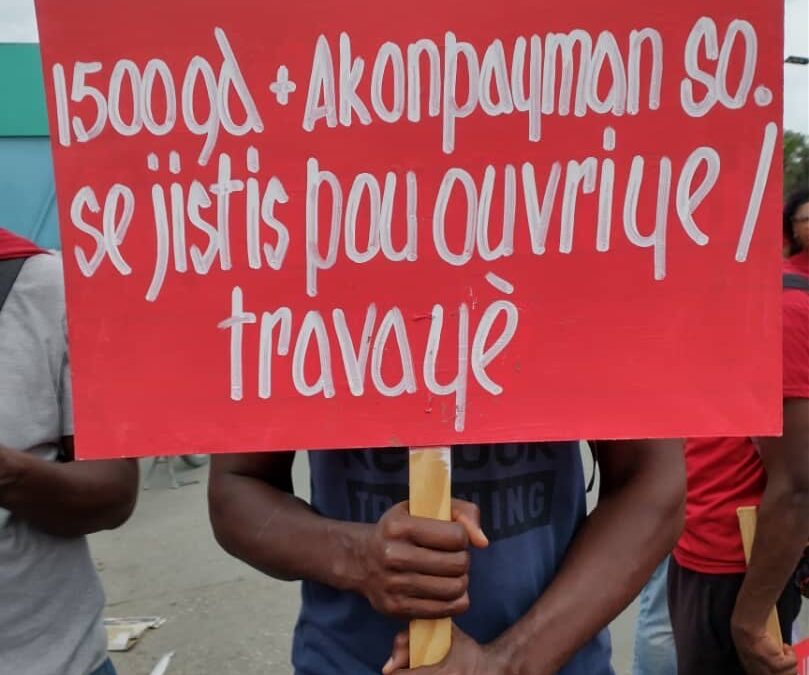
Jul 26, 2024
More than 500 Philippine workers and trade unionists joined a march on July 22nd in Quezon City, demanding that President Ferdinand R. Marcos, Jr. declare support in his State of the Nation Address (SONA) for legislation that would further raise the minimum wage.
The Regional Tripartite Wages and Productivity Board approved a 35 PHP (approximately 0.60 US dollar) daily minimum wage hike for workers in the capital region earlier this month. This falls far short of the 150 PHP (about 3 US dollars) wage hike the National Wage Coalition has persistently called for to support workers’ economic recovery amid high inflation, poor job quality and a lack of new and decent jobs.
The Coalition, representing local workers across various industries and sectors, has remained steadfast in demanding livable wages and are advocating for multiple bills that have been introduced but still await action from the government.
The president has yet to engage in dialogue with Philippine Labor representatives and did not mention wages in his SONA.
Coalition member, Center of United and Progressive Workers (SENTRO), noted in an online statement, “[t]he [national government’s] absence of genuine effort to attain long-term solutions against rising costs and the provision of measly increases that leave workers running in place against inflation…” SENTRO added, “We deserve higher wages not simply because of our labor, but because we are human beings who have every right to live peacefully and decently.”

Aug 9, 2022
Haitian garment workers scored a huge victory as a coalition of unions negotiated an agreement with the government to provide garment workers in Port-Au-Prince with transportation and food stipends.
“In our struggle for a better working environment and fair wages we have always emphasized that the government should provide social support to workers, especially those in the textile sector. And here it is for the first time that our demands have been heard, even if it is not yet in effect, but the government has planned to accompany the workers by offering them transportation and food costs for an amount of 135,000,000 gourdes ($1,116,595),” said Telemarque Pierre, coordinator of SOTA- Batay Ouvriye.
“From now on, we would like the government to take care to include these accompaniments in the annual budgets so that the workers can always benefit from these advantages.”
The government will distribute the funds via a mobile app. The stipend will cover the cost of travel to and from the factory, and include a lunch stipend. Inflation and gang violence have led to skyrocketing prices for food and fuel such that workers cannot afford travel to and from work or food at lunchtime.
The agreement underscores the importance and effectiveness of unions in improving the lives of workers.
“We can say now that every time there is a problem, the workers come to the union because they always find that the unions are a real help,” said Eliacin Wilner, GOSTTRA organizer.
Unions are working to ensure that workers are aware of the program and able to access their benefits.
The agreement is the result of minimum wage protests by garment workers in January 2022. Fueled by frustration over three years without a minimum wage increase and the rising cost of basic necessities and services, workers at the SONAPI industrial park in Port-Au-Prince held a spontaneous protest to call for a wage increase.
The peaceful demonstrations extended into February and were met with police violence.
The protests led to negotiations between the government and a coalition of nine textile unions. The coalition’s advocacy resulted in an increase of the minimum wage from 500 gourdes ($4.82) per day to 685 gourdes ($5.85) per day.
Solidarity Center studies repeatedly have demonstrated the daily minimum wage is far less than the estimated cost of living in Haiti. Significant job losses due to supply chain disruptions have left most garment workers facing diminished working hours or layoffs, threatening their ability to provide for their families. These periods of income precarity are especially dire given that most low-wage garment workers lack savings.


